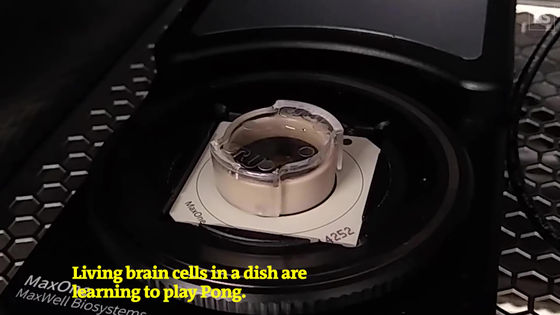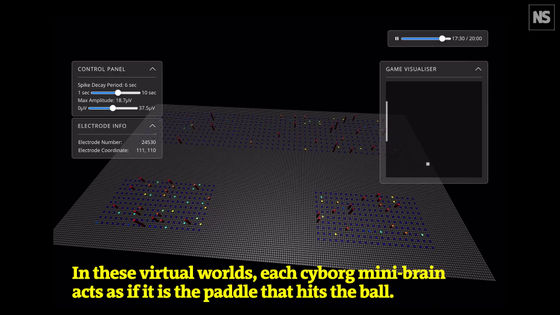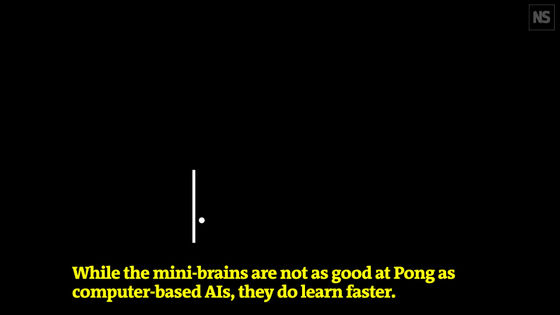Succeeded in letting the 'mini brain' of a person cultured in the laboratory play the game, learning in just 5 minutes faster than AI

Research teams in Australia and the United Kingdom have announced that they have succeeded in getting
In vitro neurons learn and exhibit sentience when embodied in a simulated game-world | bioRxiv
https://www.biorxiv.org/content/10.1101/2021.12.02.471005v2
A mass of human brain cells in a petri dish has been taught to play Pong
https://medicalxpress.com/news/2021-12-mass-human-brain-cells-petri.html
Mini-brains: Clumps of human brain cells in a dish can learn to play Pong faster than an AI | New Scientist
https://www.newscientist.com/article/2301500-human-brain-cells-in-a-dish-learn-to-play-pong-faster-than-an-ai/
Human brain cells grown in a petri dish learn to play Pong faster than AI | Daily Mail Online
https://www.dailymail.co.uk/sciencetech/article-10322247/Human-brain-cells-grown-petri-dish-learn-play-Pong-faster-AII.html
'Cerebral organoids,' which are primitive brain tissues created by culturing human brain cells, are useful for research on the mechanism of the brain and for the development of new drugs. In addition, past studies have detected fetal-like brain waves in pea-sized brain organoids, and in some cases have succeeded in generating light-responsive eyes.
Report that eyes have grown on human 'mini-brain' cultured in the laboratory, respond to light --GIGAZINE

by Elke Gabriel
The research team at Cortical Labs, Australia, which is researching synthetic biology that fuses biotechnology and engineering, has the potential of synthetic biological intelligence (SBI), which has remained in the world of science fiction novels. In order to find out, we conducted research on culturing human cells in the brain in a machine.
First, the research team constructed a 'Dish Brain system' that allows the brain and machines to interact by culturing a mass of cells created from human iPS cells as brain cells on a large number of microelectrodes.
And when I let this 'Dish Brain system' play PONG's one-player mode, he learned how to play in just 5 minutes. According to the research team, it would take 90 minutes for the current AI to learn the same thing.
You can see how the 'Dish Brain System' is actually playing PONG from the following movie.
Human brain cells in a dish learn to play Pong --YouTube
This is the 'Dish Brain system' developed by the research team this time. The brain cells installed in the 'Dish Brain system' can stimulate other brain cells and read the stimuli of other brain cells.

The 'Dish Brain System' will learn how to hit the ball well by manipulating the paddle by relying on the electrical signal that indicates where the PONG ball is.

As a result, the 'Dish Brain System' learned how to play the game in a dozen or so rallies. In comparison, AI needs to repeat the rally 5000 times to learn PONG.

Regarding the 'Dish Brain System,' Brett Kagan, lead author of the paper and chief scientific officer at Cortical Labs, said, 'When this brain moves the paddle in a PONG,'he' will think of himself as a paddle. It's just like living in the virtual world of the movie The Matrix. '
Related Posts:







